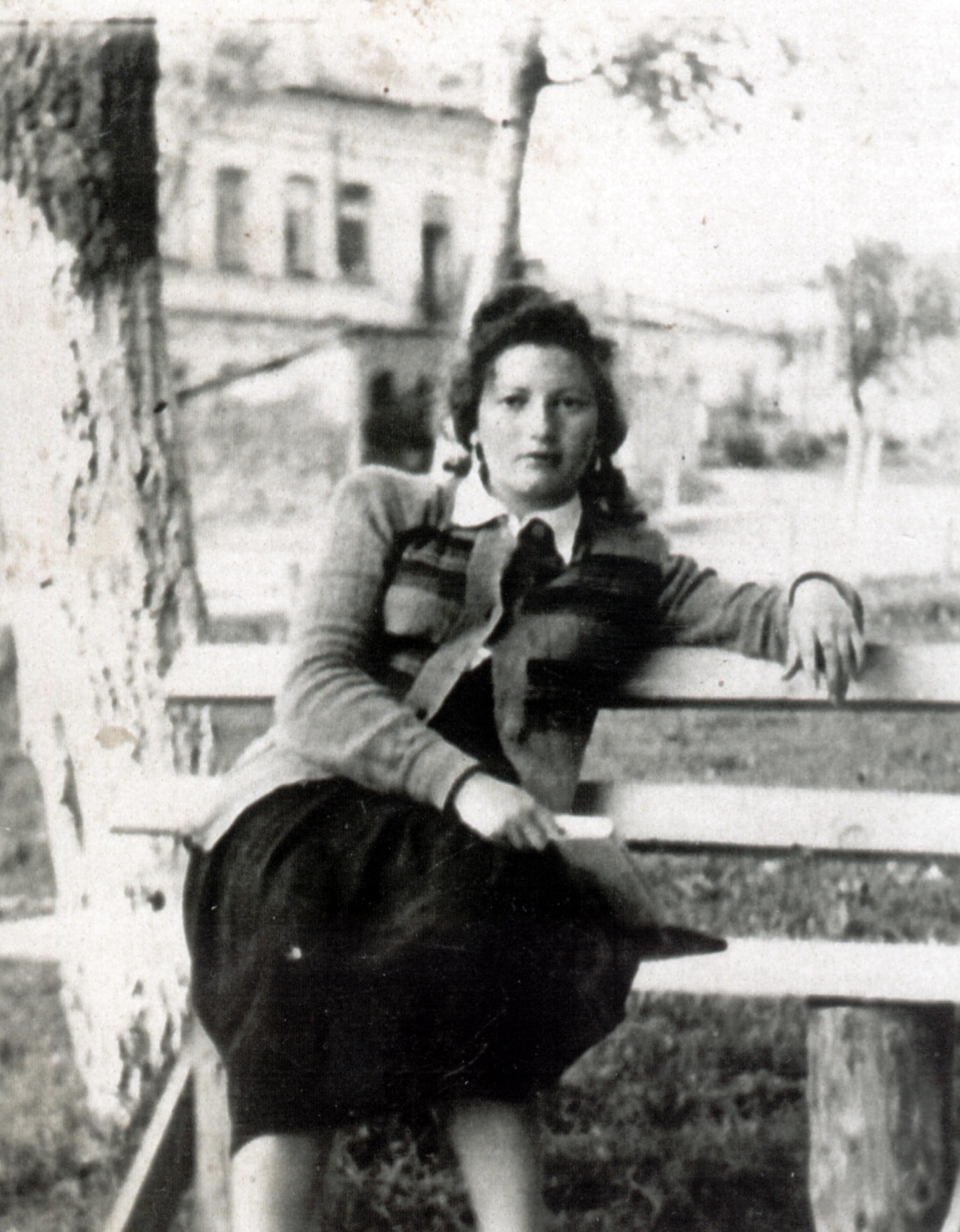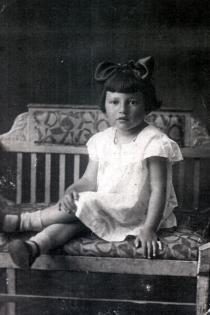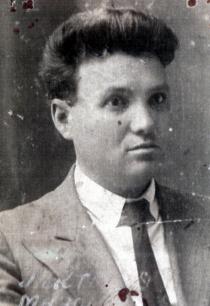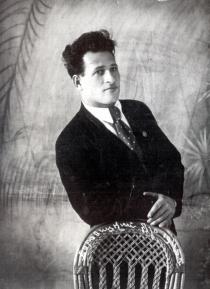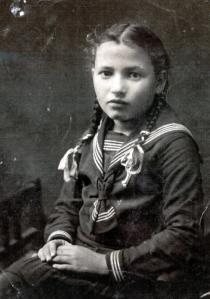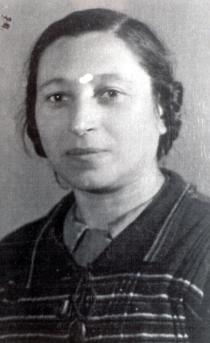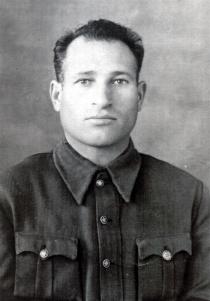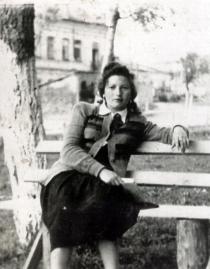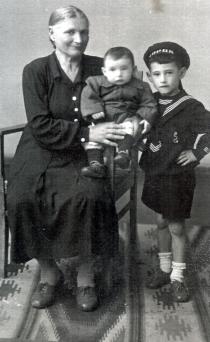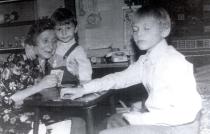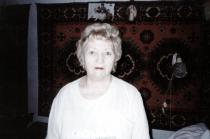I, Irina Mazor, photographed in Berdichev in 1951. I’m sitting from of our house and I’m prepared to go to a dancing party with my husband
Berdichev was liberated in the late fall of 1944 and we returned home in March-April 1945. Our house wasn't ruined and we returned to our apartment - only our belongings were gone. The windows were broken during air raids and window frames were stolen, but we were glad to have a roof over our heads. This was more than many other people had. I went to the 7th form at my former school. I remember Victory Day on 9 May 1945 - how happy people were that the war was over. They came onto streets singing and crying and greeting each other.
At 16,when I was in the 10th form, I went to a registry office to obtain my passport. A day before my mother told me to have my nationality written as Ukrainian. I obtained my passport where in the item line 'Origin' was written 'Ukrainian'. I was to enter an institute and she new that there were admission restrictions for Jews. My mother never discussed this subject, but she was eager to help her daughter. My mother strongly believed in communist ideas like millions of her contemporaries without giving a thought to contradictions that were growing: anti-Semitism among them. She loved me dearly and wanted me to have a better life, but she knew that Jews were facing problems in the post war Soviet Union: problems with getting a job or entering an institute. She didn't think about assimilation.
In 1947 two major events happened in our life: I entered the Pedagogical College [with 2 years of studies: this was a teachers' training college; its graduates could only work in village schools] and my mother got married. At that time this institution was referred to higher educational institutions, but actually it was similar to high school.
I graduated from the institute in 1949 and was even glad to get a job assignment in Solotvin village, since there was too little space at the place where we lived. I remember numerous meetings at the institute where attendance was compulsory. They blamed and accused 'rootless cosmopolites' at the meetings. I was 19 and didn't give much thought to what it was about and what it had to do with me. At home we didn't discuss newspaper publications or political subjects. My mother came home tired and didn't feel like talking at all and I couldn't care less about any political subject. My friends and I were more interested in parties and dancing. At one such party I met extended service man Alexandr Penkin. Alexandr was Russian. He came from Riazan. He was born in 1924. He looked very handsome and nice to me. My mother didn't care about his nationality and He, when I told him that I was a Jew replied that it didn't matter to him. We got married in 1949 after I graduated from the institute. We had a small wedding party on the day when we registered our wedding at the state registry office where we invited our friends and relatives. I went to work at school in the village and my husband left the army and went to work as milling machine operator at a plant.
In 1952 my son Vladimir Penkin was born in Berdichev. I went to have a baby in Berdichev where my mother was. It was scaring to hear from friends and acquaintances 'don't go to this doctor or beware of that doctor - they are all involved in murder and poisoning'. The majority of people believed that everything in official publications was true. People didn't trust Jewish doctors while there was a number of them in Berdichev. This was the period of ‘doctors' case' when there were many scaring publications in newspapers that people believed. I was very concerned since I, too, believed that my baby might be murdered on purpose. I didn't go to a Jewish doctor. However, I had a nice and healthy baby.
I didn't go back to the village. My husband and I received a room in a hostel for families. There were 4 families in a block of rooms (one room for each family) and a communal kitchen. We had central heating and a kitchen that was heated, too. The toilet was in the yard.
